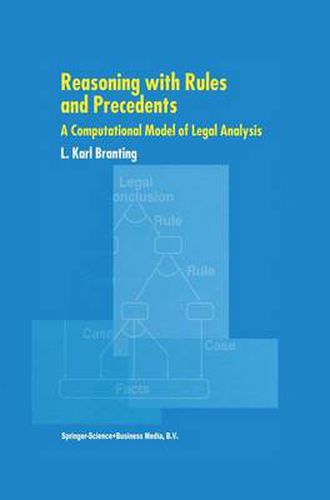Readings Newsletter
Become a Readings Member to make your shopping experience even easier.
Sign in or sign up for free!
You’re not far away from qualifying for FREE standard shipping within Australia
You’ve qualified for FREE standard shipping within Australia
The cart is loading…






This title is printed to order. This book may have been self-published. If so, we cannot guarantee the quality of the content. In the main most books will have gone through the editing process however some may not. We therefore suggest that you be aware of this before ordering this book. If in doubt check either the author or publisher’s details as we are unable to accept any returns unless they are faulty. Please contact us if you have any questions.
Few areas of human expertise are so well understood that they can be completely reduced to general principles. Similarly, there are few domains in which experience is so extensive that every new problem precisely matches a previous problem whose solution is known. When neither rules nor examples are individually sufficient, problem-solving expertise depends on integrating both. This text presents a computational framework for the integration of rules and cases for analytic tasks typified by legal analysis. The book uses the framework for integrating cases and rules as a basis for a new model of legal precedents. This model explains how the theory under which a case is decided controls the case’s precedential effect. The framework for integrating rules and cases is implemented in GREBE, a system for legal analysis. The book presents techniques for representing, indexing, and comparing complex cases and for converting justification structures based on rules and case into natural-language text. This book should be of interest to researchers in artificial intelligence, particularly those involved in case-based reasoning, artificial intelligence and law, and formal models of argumentation, and to scholars in legal philosophy, jurisprudence, and analogical reasoning.
$9.00 standard shipping within Australia
FREE standard shipping within Australia for orders over $100.00
Express & International shipping calculated at checkout
This title is printed to order. This book may have been self-published. If so, we cannot guarantee the quality of the content. In the main most books will have gone through the editing process however some may not. We therefore suggest that you be aware of this before ordering this book. If in doubt check either the author or publisher’s details as we are unable to accept any returns unless they are faulty. Please contact us if you have any questions.
Few areas of human expertise are so well understood that they can be completely reduced to general principles. Similarly, there are few domains in which experience is so extensive that every new problem precisely matches a previous problem whose solution is known. When neither rules nor examples are individually sufficient, problem-solving expertise depends on integrating both. This text presents a computational framework for the integration of rules and cases for analytic tasks typified by legal analysis. The book uses the framework for integrating cases and rules as a basis for a new model of legal precedents. This model explains how the theory under which a case is decided controls the case’s precedential effect. The framework for integrating rules and cases is implemented in GREBE, a system for legal analysis. The book presents techniques for representing, indexing, and comparing complex cases and for converting justification structures based on rules and case into natural-language text. This book should be of interest to researchers in artificial intelligence, particularly those involved in case-based reasoning, artificial intelligence and law, and formal models of argumentation, and to scholars in legal philosophy, jurisprudence, and analogical reasoning.